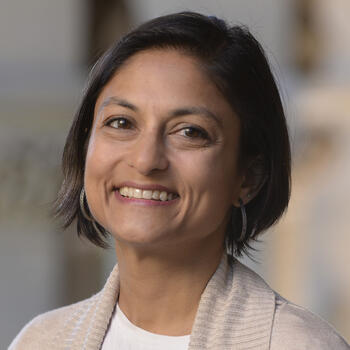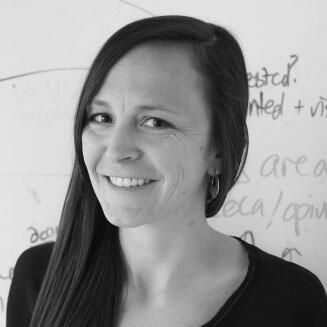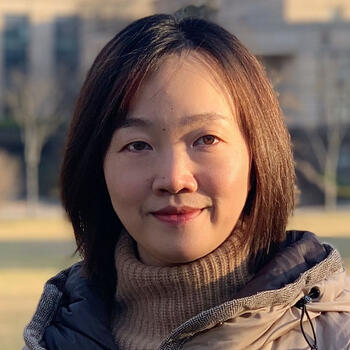Spending More, Gaining Less: Lowest-Income Koreans Derive the Least Value from Health Care Investment, New Research Reveals
As countries confront rising health care spending, policymakers everywhere face a key question: Who benefits from these spending increases?
Consider South Korea, a nation that has sharply increased its per capita health care spending over the past decade, delivering reasonable value in improving health outcomes as measured by rising life expectancy and a reduced overall disease burden. Yet, not all South Koreans reap equal rewards from the country’s health investments, according to a new study. Rather, adults in the lowest-income quintile receive the least health gains for every dollar spent on their care.
Published in the journal Health Affairs Scholar, the study reveals stark income-based disparities in the value of health care — defined as health gains relative to spending — among South Korean adults. The research systematically quantifies how efficiently health spending translates into longer, healthier lives across income groups in South Korea, providing insights into the distribution of health gains relative to health care spending.
“While earlier research often examined disparities in access, utilization, or outcomes separately, our analysis provides a more integrated assessment by jointly examining health care costs and health gains,” explains the research team, including Stanford health economist Karen Eggleston, the director of the Asia Health Policy Program (AHPP) at APARC. Eggleston’s co-authors are Sungchul Park, an associate professor in Korea University’s Department of Health Policy and Management and an incoming visiting scholar with AHPP; Young Kyung Do, a professor in Seoul National University’s Department of Health Policy and Management and AHPP’s inaugural postdoctoral fellow; and David Cutler, the Otto Eckstein Professor of Applied Economics at Harvard University.
Their findings are sobering: between 2010 and 2018, South Korean adults in the lowest income quintile derived the least value from increased health spending compared to those in the middle- and higher income quintiles, suggesting a system that underserves the poorest population.
Sign up for APARC newsletters to receive updates on our scholars’ research >
Poorer Health, Smaller Gains
Between 2010 and 2019, per capita health care spending in Korea increased from $1,211 to $1,903, growing nearly 6 percent annually. During that decade, life expectancy climbed from 80.5 to 83.7 years, while disability-adjusted life years – expressed as the number of years lost due to ill-health – declined significantly. These measures seemingly suggest health spending has yielded solid returns in terms of improved health outcomes.
Yet stark income inequality persists in Korea. The country has both the highest old-age poverty rate and the largest share of out-of-pocket medical expenses among OECD countries. Does rising health spending benefit all segments of society equally?
To answer this question, the researchers analyzed trends in health spending and outcomes across income quintiles (excluding the bottom 10 percent of the household income distribution) from 2010 to 2018.
They measured health care spending as total medical expenditures, including costs for inpatient and outpatient services, emergency services, and prescription medications. All spending measures were adjusted for inflation and are reported in 2021 US dollars. To asses health outcomes, they used three indicators: (1) health-related quality of life, which relies on standard questionnaires to measure individuals’ perceived physical and mental health over time; (2) life expectancy, calculated using life table methods based on enrollment data from the national health insurance system; and (3) quality-adjusted life expectancy (QALE) at age 25, a measure that reflects both longevity and the quality of life during those years – an essential consideration when evaluating the effectiveness and equity of health care systems. To quantify the value of health care across income groups, the researchers applied statistical methods.
They found that adults in the lowest-income quintile experienced the smallest relative improvement in QALE over time: an increase of 0.7 years, compared with 1.4 years in the second and third quintiles, 1.3 years in the fourth, and 1.2 years in the highest quintile. Translated into a value estimate, adults in the lowest income quintile incurred $78,209 per QALE; in contrast, adults in the second through highest income quintiles achieved greater value estimates of $47,831, $46,905, $31,757, and $53,889, respectively. Thus, the most efficient gains in both longevity and quality of life were in the middle-income groups.
“We found that per capita spending was similar across income groups, but the lowest-income quintile experienced much smaller gains in QALE,” Eggleston and her collaborators write.
Reflecting the principle of diminishing returns, “these findings highlight structural inequities in the South Korean health system and emphasize the need for targeted policies to promote equitable health care value.”
Why Spending Does Not Equal Value
While the study did not identify causal pathways, secondary data suggest two plausible explanations for the results: poorer baseline health and greater unmet needs.
The data indicate that adults in the lowest-income quintile had significantly higher rates of chronic disease, disability, behavioral risk factors such as smoking and obesity rates, and mental health issues. These factors make it more difficult to achieve health gains.
Moreover, adults in the lowest-income quintile were less likely to receive preventive services, with markedly lower rates of medical checkups and cancer screenings. “Despite greater health needs, these adults faced persistent barriers to accessing care, particularly financial constraints,” the researchers say.
Notably, the highest value of health spending was not observed among adults in the highest-income group. One explanation is that this group may consume more low-value or marginally beneficial health services.
Policy Implications: Efficiency with Equity
Eggleston and her co-authors emphasize “the need for health policy in South Korea to prioritize both equity and value.” They highlight the following targeted strategies to improve efficiency and fairness:
- Invest in high-value services that link spending to meaningful health outcomes:
- Improve access to high-value preventive and primary care services by expanding financial protections, particularly for lower-income groups.
- Improve overall system efficiency by reducing the overuse of low-value health care services.
- Pair health care reform with broader social policies: Coordinate efforts to address upstream factors tied to health disparities, such as income inequality.
- Aim for improvements across the entire population: Implement evidence-based clinical appropriateness guidelines to ensure health care spending yields meaningful and equitable results.
While focused on South Korea, the study’s findings illuminate how income inequality interacts with health system designs and carry lessons for other countries.
“In countries with greater income inequality and fragmented health systems, such as the United States, disparities in health care value may be even more pronounced,” the co-authors write.
As South Korea and other countries continue to invest heavily in health care, the study highlights the urgency of improving the distribution and impact of that increased spending. Without focused reforms, it risks entrenching existing inequities rather than alleviating them.
Read More

Despite rising health care spending, adults in South Korea’s lowest-income quintile experience the smallest relative improvement in life expectancy and well-being, according to a new study. The co-authors, including Stanford health economist Karen Eggleston, call for the country’s health policy to prioritize both equity and value, and highlight lessons for other health systems.

 FSI researchers work to understand continuity and change in societies as they confront their problems and opportunities. This includes the implications of
FSI researchers work to understand continuity and change in societies as they confront their problems and opportunities. This includes the implications of 














